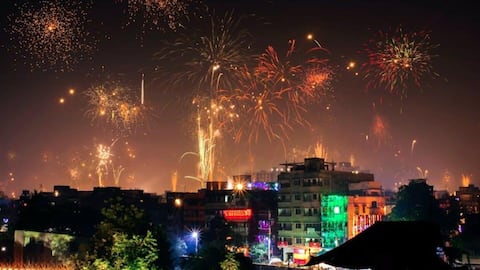How Diwali rituals differ in North and South India
What's the story
Diwali, the festival of lights, is celebrated with immense joy across India. Homes glow with diyas, sweets are exchanged, and families come together in celebration. Yet, the rituals and stories behind the festival differ beautifully between North and South India. As each region adds its own cultural flavor, read on to discover how their traditions make Diwali uniquely special.
North
North India: The homecoming of Lord Rama
In North India, Diwali celebrates Lord Rama's return to Ayodhya after 14 years of exile and his victory over Ravana. Houses are illuminated with diyas to symbolize the joy of welcoming him home. People clean and decorate their homes, perform Lakshmi Puja for prosperity, burst firecrackers, exchange sweets, and celebrate with grandeur, reflecting devotion and the triumph of righteousness.
Puja
The night of Lakshmi Puja
For most North Indian households, Diwali evening is dedicated to Goddess Lakshmi, the bringer of wealth and fortune. Devotees light diyas throughout their homes to invite her blessings and prosperity. Families gather for prayers, decorate with rangoli, and play cards as a sign of good luck. The festival blends spirituality with festivity, embracing both tradition and celebration in equal measure.
South
South India: The victory of Lord Krishna over Narakasura
In South India, Diwali is known as Naraka Chaturdashi and marks Lord Krishna's victory over the demon Narakasura. The festival begins early morning with an oil bath, symbolizing purification of body and soul. New clothes are worn, prayers are offered, and traditional sweets are shared with loved ones. The focus here is on cleansing, renewal, and the joy of freedom.
Puja
The celebration of light at dawn
Unlike the North's night-long festivities, South India celebrates Diwali in the early hours of the morning. The day starts with oil baths, new clothes, and prayers before sunrise. Crackers are burst soon after, symbolizing the destruction of evil. Homes are cleaned and decorated with kolam (rangoli). The focus lies in beginning the day with purity, positivity, and divine blessings.
